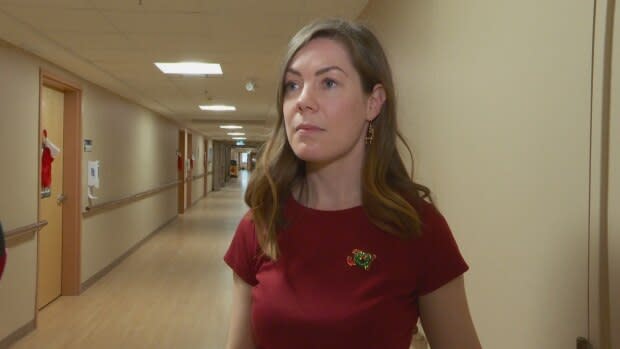Nursing home, community-care reps concerned with changes meaning they will no longer sit on regulatory board
The province has told some representatives they are no longer needed on a provincial board that helps with the regulation of seniors' homes.
Recent changes in legislation mean that the Community-Care Facilities and Nursing Homes Board will no longer have representatives from facilities once their terms finish.
There used to be three industry representatives on the seven-person board. That will change to a nine-person board with no industry representatives.
Lindsay Dickieson, an administrator for the Mount Continuing Care Community and former board member and representative for the Nursing Home Association, says it's a disappointing change.
"I think it's unfortunate that we don't have that representation right at the table," said Dickieson.

She said it's important to have insight into the day-to-day operations, and other members may not have that knowledge.
"As a board member, I did add that perspective of the facilities and how operations work," she said.
Dickieson said the board issues licences for all community-care facilities and private nursing homes, and makes sure facilities meet standards to keep residents and staff safe.
"The majority of the meeting would deal with licensing of facilities," said Dickieson. "In order to licence a facility there has to be an inspection done."
Dickieson said the board would look at inspection reports to see if standards had been met.
'Better non-biased representation'
The minister of health was not available for comment at publishing time.
According to Hansard, the official record of discussions in the legislative assembly, on Nov. 21, Health Minister James Aylward described the change as "reconfiguring that so we have what we feel would be a better, non-biased representation on that board."
Aylward later said, "rather than having owners of private facilities actually sitting on this board coming up with their own regulations of how they're licensed, we're looking to have non-biased individuals on the board."
If it involved my facility here at the Mount, I would not be a part of even the discussion, or the decision. — Lindsay Dickieson, former board member
Legislative specialist Nichola Hewitt was also present in the legislature that day and explained the new board would have three people employed in health and social services and six representatives from the public.
According to the transcript, Hewitt said "public reps would be representative of various community interests."
Board 'functioned very well'
Dickieson said if there were conflicts, members removed themselves from discussions.
"If it involved my facility here at the Mount, I would not be a part of even the discussion, or the decision," she said. "I think the board functioned very well."

Dickieson said they were not given much time to give feedback on the legislative changes and it felt rushed.
She said another legislative change saw fines increased for any violations — $10,000 for an individual and $50,000 for a corporation. They used to be $500.
"As a facility we certainly make every effort to abide by legislation and standards," she said.
"So to be told there would be a higher cost or dollar cost on these fines, sort of makes us feels like well are we not doing a good job, are we not meeting expectations."
Dickieson hopes although facility reps won't be on the board, they will still be able to have input in some way.
More P.E.I. new


